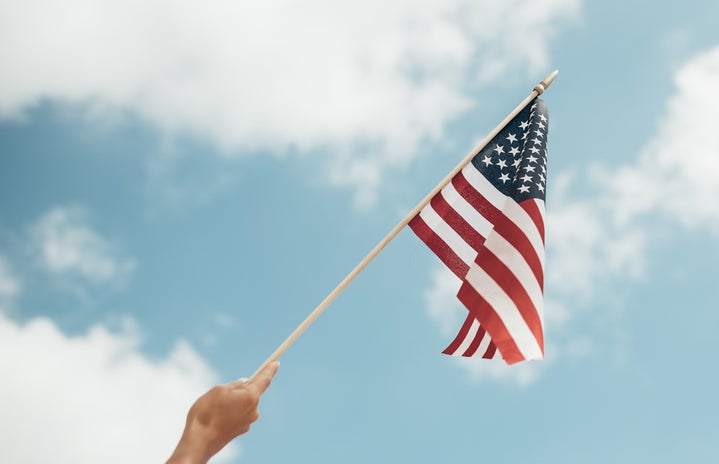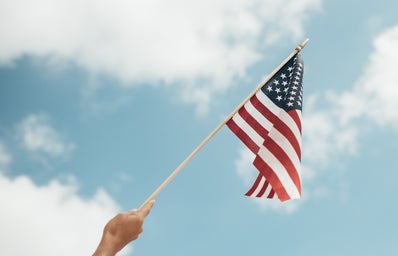Note: This was written before election results were announced.
The 2020 Presidential Election is unlike any other, occurring in the middle of a pandemic, and occurring when the nation appears exceedingly polarized.
In general many people have found this past year to be disastrous, with tragedies transpiring worldwide: the devastating bushfires in Australia, the brutal murders of several innocent African Americans, the famine in war-afflicted Yemen, the climate crisis–– just to name a few. Though not all of these tribulations materialize directly in the United States, they have an impact on those who identify with the groups being directly targeted. Not to mention, the U.S. is a global superpower and has the capability to tackle these matters.
Nonetheless, before the U.S. can properly approach these ethical dilemmas, they must first focus on their own government. Election year falling in the midst of COVID-19 has given voters the option to vote by mail through absentee ballots, vote early, or vote in-person on election day, November 3rd. These methods alone have caused controversy, but what seems arguably more controversial are the two presidential candidates–– Republican Donald Trump, running with his vice-presidential candidate Mike Pence, and Democrat Joe Biden, running with his vice-presidential candidate Kamala Harris.
Donald Trump, the current U.S. president, is tendentious in standing for issues that appeal more to the right-leaning conservatives, such as increasing military spending, pursuing substantial income tax cuts and withdrawing from the World Health Organization because of their response to COVID-19. Joe Biden, former U.S. vice-president, supports policies that appeal to those more left-leaning, though not to the same extent as Trump appeals to conservatives. For instance, Biden supports the Affordable Care Act, supports allowing undocumented immigrants to get insurance through Medicaid or other public insurance programs and supports restoring voting rights for convicted felons who have completed their sentences, but does not support defunding the police, which several left-leaning people prefer.
Dr. Andrew Cullison, philosophy professor and director of the Janet Prindle Institute for Ethics, hosted a zoom webinar at 6:30 PM on election day called “Talk About The Times–– Election Night Special.” In this webinar, Dr. Cullison discussed interferences with the election, such as how people are writing about the election, as well as possible voter suppression.
“To be honest, I was expecting to see more stories about voter intimidation [because of] all of the talk about folks being armed at the polls… I’ve been refreshing the New York Times, CNN and Washington Post.”
This raises the assumption that the predictions regarding armed people at the polls was an attempt of fear-mongering, which he brings up later.
Possible cases of voter fraud were also mentioned in the webinar. For instance, there have been cases of fake ballot boxes in some states (though, it should be mentioned that the republicans who set up the drop boxes were ostensibly going to turn the ballots into the authorities, but whether or not they have done so has yet to be confirmed). Further, anyone can drop someone else’s absentee-ballot on their behalf, which raises questions regarding if all ballots were successfully mailed in.
“Some folks will [say], ‘Give me your ballots; I’ll go take them.’ [The GOP] was basically offering themselves up as a way to turn your ballot in, and there was a dispute about whether this was illegal or not.”
During the discussion, cases of votes being thrown out were also examined. In Texas, the Supreme Court dismissed a claim to throw out approximately 127,000 ballots that were cast by drive-through voting.
“There is a dispute about whether you can change rules for an election and how close to the election it might be before changing rules… Suddenly, the election is way harder to pull off amidst COVID-19 so all of these changes are being implemented, and that’s where all of these challenges are coming from.”
Going back to the topic of fear-mongering, the amount of counseling services that have been advertised as a result of the election was brought to light. In previous elections, these displays of mental health awareness weren’t as apparent. It was discussed that instead of calming people down, bringing attention to counseling now, in the context of the election, could have the adverse effect as it causes a sense of dread. Similarly, cautioning people to board up their shops creates a pre-war setting, which induces panic even more.
“There has never been an election where people have been preemptively preparing for riots. That has never been a thing. If you’re telling people to prepare… doesn’t that cause other people to want to [riot] more?”
Dr. Cullison assesses the oddity of this election further.
“I cannot even begin to describe how bizarre this election cycle has been… it’s completely unprecedented in modern American history with one exception–– Nixon behaved this way a little bit. He tried to demonize the press, he wanted to use military force to quell peaceful protests during the Vietnam War… there’s a little hint of that.”
Finally, Dr. Cullison ended the election night discussion with describing the Red Mirage prediction.
“If you think about it, all of those mail-in ballots are going to get counted after. They are going to be disproportionately Biden-voters. So, on election night, for a lot of these swing-states we are probably going to see a Red Mirage, where it looks like [the election map is disproportionally red.] The northern states can’t count [the ballots] until election night.”



